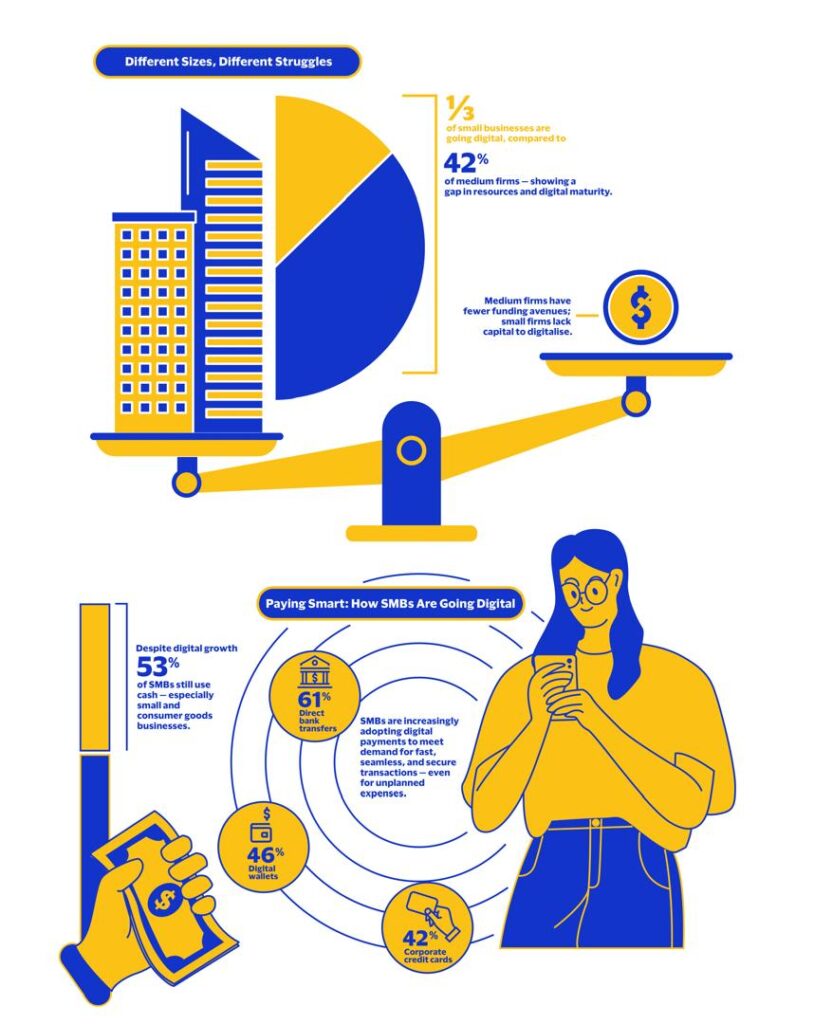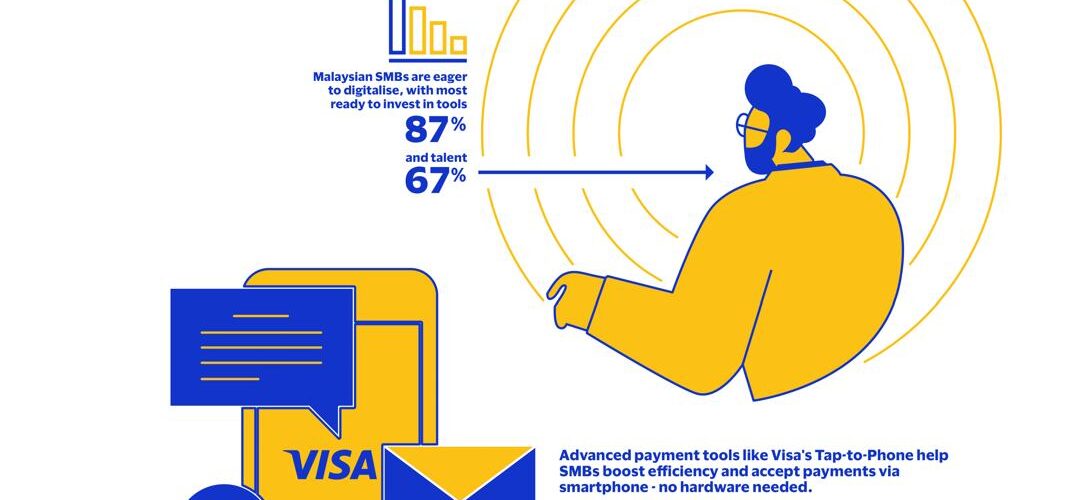Challenges Shaping SME Priorities
A recent Visa study titled “Evolving SMB Landscape in Malaysia” surveyed 800 SMEs and revealed the top concerns:
- Rising operational costs – 57%
- High labour expenses – 52%
- Inflation pressures – 55%

The study also highlighted differences based on business size. While 42% of medium-sized firms are prioritising digitalisation, only about a third of small businesses are doing the same. The gap reflects smaller firms’ limited resources, whereas medium-sized firms, although more mature, face higher growth costs and fewer financing options.
Digitalisation: A Strategic Lifeline
Digital technology is reshaping how SMEs operate. Tools like inventory management platforms bring transparency to supply chains, reducing human error and improving efficiency. Meanwhile, technologies such as AI and automation hold the promise of:
- Enhanced productivity
- Personalised customer experiences
- Reduced operational burdens
According to IDC, one-third of Asia-Pacific SMEs plan to ramp up digital and automation investments by 2026.
The Rise of Digital Payments
One of the most visible shifts is the adoption of digital payments. As consumer demand for fast, seamless, and secure transactions grows, SMEs are increasingly adopting cashless solutions — not just for customer payments, but across their supply chains.
The Visa study shows:
- Online payments top the list for SMEs
- Bank transfers (61%) and digital wallets (46%) are also widely used
This trend is especially significant for micro and street vendors, many of whom operate without traditional banking access. Fintechs, banks, and digital-first solutions are now targeting this underserved segment.
Empowering Micro-SMEs: Tap to Phone
Visa’s Tap to Phone technology allows micro-enterprises to accept card payments via smartphones, eliminating the need for costly hardware. This low-barrier solution helps:
- Reduce cash dependency
- Increase revenue opportunities
- Improve operational transparency
Street vendors and small traders can now compete more effectively in a digital-first marketplace.
Smarter Financial Tools for SMEs
Managing finances efficiently is a cornerstone of SME success. A key step in this process is the clear separation of business and personal expenses. Unfortunately, many SME owners still use personal cards for business, leading to:
- Complicated bookkeeping
- Increased risk of error
- Missed financial benefits
Business cards — debit, credit, or prepaid — provide tailored features:
- Expense tracking and reporting
- Integration with accounting software
- Access to higher credit limits and rewards
- Business-specific perks (e.g., travel insurance, discounts)
By embracing these tools, SMEs can optimise cash flow, access credit when needed, and gain better financial control.
Digital Transformation: A Growth Imperative
The shift toward digitalisation is no longer optional — it’s a strategic necessity. Digital payments and technologies allow SMEs to:
- Lower costs
- Shorten payment cycles
- Expand into new markets
- Serve customers more efficiently
For many businesses, this transformation marks a turning point, offering not just survival, but scalable, sustainable growth.
Conclusion: Building the Foundation for Future Success
Malaysian SMEs are entering a new era — one where embracing digital tools is central to overcoming challenges, unlocking growth, and staying competitive. By investing in automation, digital payments, and smarter financial management, SMEs are not just reacting to change — they are reshaping the future of Malaysian commerce.









